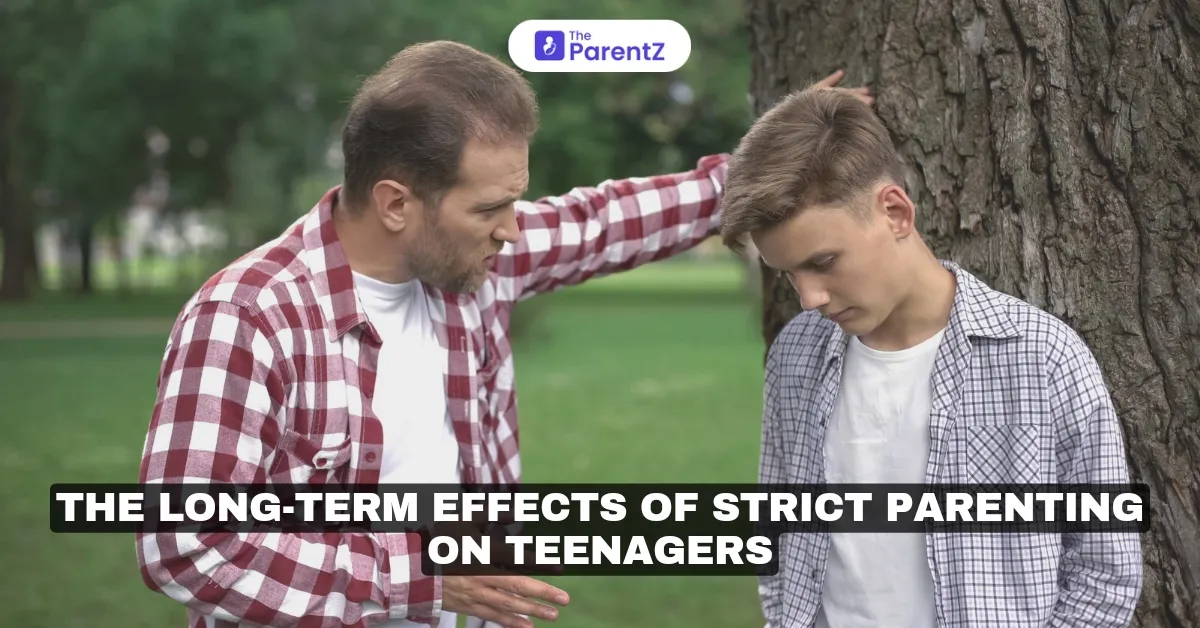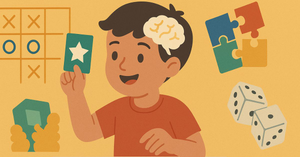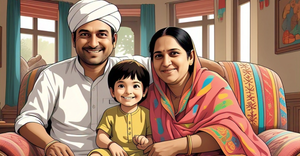Parenting is complicated. And strict parenting takes things to a whole new level!
Most parents believe that strict rules and tough love will turn their kids into disciplined and successful teenagers. It is basically the typical stereotypical family of a military-style home with countless rules and zero fun!
And this approach often results in some unintentional consequences. From affecting their emotional health to future relationships, strict parenting can really leave a significant impact on teenagers.
Read this article to learn about the long-term effects of strict parenting it has on teens.
Strict Parenting—What Is It?
Strict parenting, or what is called authoritarian parenting, is referred to when there are high expectations, strict rules, and little to no room for flexibility. It can be considered the ‘My Way or the Highway’ kind of parenting approach, where the parent usually expects obedience without question. To add, this parenting style often focuses on giving punishments if the rules are not met. And the main reason behind why they do so is—to take control so they stay out of trouble.
The Emotional Impact of Strict Parenting
One of the most significant impacts of strict parenting is how it shapes the teen’s emotional health in the long run. Especially when parents focus more on rules than on the parent-child connection, teens end up feeling undervalued.
According to a study published in the Journal of Adolescence, teenagers who were raised in authoritarian households were more likely to experience anxiety and depression compared to those raised in more supportive environments.
And, of course, it makes sense—being constantly told what to do without any explanation leaves teens feeling frustrated.
For strict parents, it's all about control, and this is the reason why they miss out on important conversations with the kids since the idea of open communication seems a distant thought.
Bottling up their emotions will ultimately result in an emotional explosion.
Academic Pressure and Burnout
It’s a vicious cycle. Teens push themselves to meet impossibly high standards, only to feel like failures who fall short in every aspect. And because strict parents rarely tolerate failure, the cycle of stress, anxiety, and burnout continues.
In fact, according to the American Psychological Association, it was revealed that teens who experience constant academic pressure are 2.5 times more likely to experience chronic stress. This is a big reason behind negative academic performance in the long run.
High expectations from strict parents eventually push them to work hard to achieve their goals. However, when these expectations couple with a toxic environment, the pressure seems too much to handle.
Impact on Relationships
Another area where strict parenting really leaves its marks is the teen’s future relationships. The fact is—kids raised in such an environment struggle with communication and trust in their adult relationships. This is because they never had the opportunity to develop these skills with their parents.
And worse, the teens may adopt the same strict, controlling behaviors they grew up with or go to the opposite extreme, becoming overly passive in relationships.
And this impact is not only restricted to romantic relationships but extends to friendships and corporate relationships as well.
Conclusion
At the end of the day, while strict rules may result in short-term authority, it has too many negative consequences for the teens in the long run. Therefore, maintaining a healthy balance in the parenting style is the key for all parents. After all, relationships built on trust and love are beneficial compared to those households ruled by never-ending punishments. A little love and understanding is what every child deserves!








Be the first one to comment on this story.